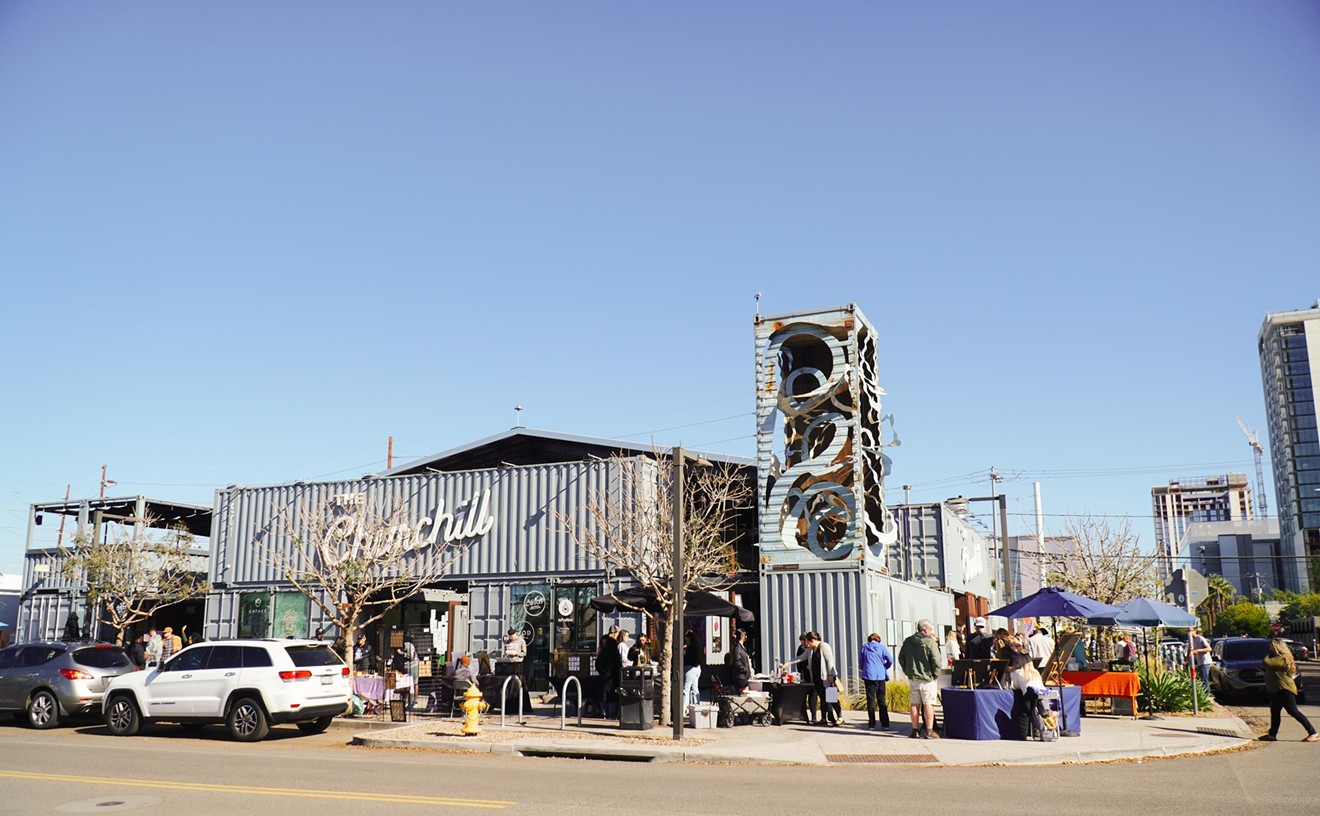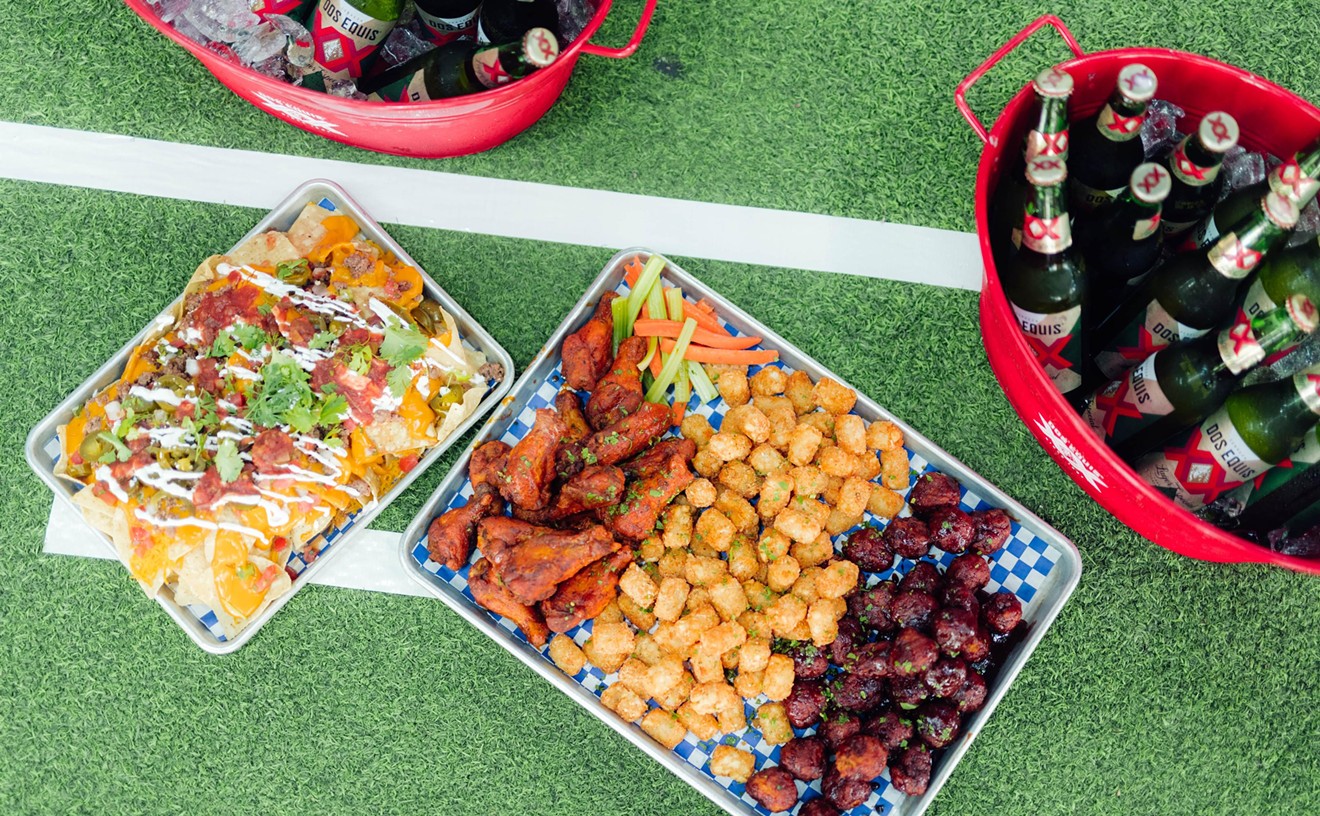My grandmother was a doctor at a medical university hospital in (then) Leningrad and every year received residents and fellows from all over the vast USSR. She was also an expert cook, originally from the region of Mordovia in central Russia. Her own cooking style was classically Russian - pirozhki (essentially like English pasties), pelemeni (think pirogi but smaller and usually filled with meat), kotleti (large meat balls served up with potatoes and friend onions), and other meat-and-potatoes and pie combinations. But she always kept her ear to the ground and tapped into the large multicultural community at work to learn new techniques and recipes. She acquired some of the most interesting and unique dishes, that became holiday staples at my home, from Uzbek and Tatar students.
Needless to say, when I recently arrived in the Valley and started looking for Russian restaurants and grocery stores, my interest was piqued by Golden Valley, a halal eatery on 19th Ave. The intersection of 19th and Northern also just happens to be the closest thing Phoenix has to a Little Russia.
A block away from Golden Valley is another Russian-Uzbek restaurant called Samarkand. This place is kosher and has some particular Bukharan Jewish specialties in addition to the Russian and Central Asian fare. Across the street from Samarkand you'll find a little Russian grocery store where to buy everything from cold cuts, to caviar, to magazines.
But in late June, our critic Laura Hahnefeld and I decided to check out Golden Valley for lunch. The restaurant only opened two months ago and I was eager to try those Central Asian specialties that reminded me of my childhood.
Manti resemble pirogi but these dumplings are steamed instead of being boiled. Inside they are filled with a hearty mixture of ground lamb, onions, herbs, and cumin. When properly prepared, the manti will fill with a delicious broth while cooking in the steamer. Manti at my house were an epic endeavor and a holiday staple. Because of the time consuming preparation process and the richness of the dumplings, my grandmother would only serve them on very special occasions and upon the request of her favorite male family members. One of her favorite things in the world was to see happy, healthy men leave the table full after her meals. The men in my family ate a lot and loved her cooking so manti were always a hit. She was taught to prepare them round with a small opening at the top so that the steam would pass through more easily creating ample amounts of broth. Eating them was also a ritual. First we bit into the dumpling dough to pour out the broth onto a spoon. After drinking that up, the manti were devoured with sour cream.The manti at Golden Valley did not disappoint. They were more oblong and had no opening at the top, but the filling was properly composed with plenty of onions and cumin. Though there was not as much broth as I had expected, the flavor of the meat so pleased me that I harbored no resentment. The order came with five plump dumplings, sprinkled with dill. I managed to get through only two which has always been about all I could handle of this delicious but heavy dish. And Laura and I had three more items to try.
Our next order was samsa, which do not differ from manti on the inside, but their shell is made of plain, flaky, baked or pan fried dough. This is pretty much a standard savory pastry, more reminiscent of English pasties than Indian samosa. In a particularly appetizing touch, the plump, golden triangles were crowned with a few toasted cumin seeds. In Russia samsa is more generally known as pirozhki. These can be filled with anything from cabbage, to eggs, to meat, to apples. My grandmother would make hers early in the morning, the day of a party or special dinner. She used recipes that she knew by heart from her upbringing in central Russia, filling them with cabbage and eggs, sometimes mushrooms, and a dark, creamy apple sauce for dessert. Though many people tend to pan fry pirozhki or samsa, my grandmother preferred to bake hers. They would come out a little less golden brown and oily, but the dough was always tender and fluffy, without the hard edges. The samsa at Golden Valley are a definite must try. The dough was delicious and a little crispy, and the filling was once again flavorful with cumin and herbs. However, with four per order you should definitely consider sharing with friends.
Next came the plov, aka pilav, palau, palaw, etc. On the Golden Valley menu it is listed as palov but same difference. Plov is a staple of Central Asian cuisine and stories about it are filled with myth and ritual. There are thousands of ways to prepare this traditional rice dish. At Golden Valley it is cooked with various herbs and spices (cumin most notably), carrots, and bits of lamb. It is rich, oily, filling, and much more flavorful than it looks at first glance. At my house we would eat this only occasionally but throughout my life I've learned many stories of its traditional consumption: I heard that in Uzbekistan and Azerbaijan it was eaten with the hands and if you were ever a guest in that region, the highest form of honor would be for the head of the household to offer you to take a mouthful from his hand. People also always told me that men would wipe the oil from the plov on their hair and onto their leather boots to keep both glistening and lubricated. There is a saying in Uzbekistan: "A poor person eats plov, a rich person eats only plov." The heaping serving at Golen Valley will more than fill you beyond capacity. We recommend you enjoy in moderation.
Our final choice was the shurba, a lamb-based stew with large chunks of potatoes, carrots, onions, and meat on the bone. By this point in the meal I was far too full to really dig in, but the broth was flavorful and the soup reminiscent of many Slavic as well as Turkic stews that are created from boiling meat and bones, vegetables and spices.
Next time I come back I will definitely get the manti again, and the delicious plov. Another good combination would be the shurba stew with samsa. The restaurant also has a large variety of kebab plates which come with various garnishes. However, if you want to experience a truly authentic and unique meal, stick with the variety of appetizers all of which are abundant enough to keep you full for hours.
Golden Valley is located at 8115 N 19th Ave, Suite A101. They're open 10 am-9 pm Sunday-Thursday and 10 am -10 pm on Friday and Saturday. You can order take-out as well as sit down for a meal and we definitely recommend the latter for the friendly service, Russian speech in the air, typical white tablecloths covered with plastic, and those cute flowery plates.
Follow Chow Bella on Facebook and Twitter.










